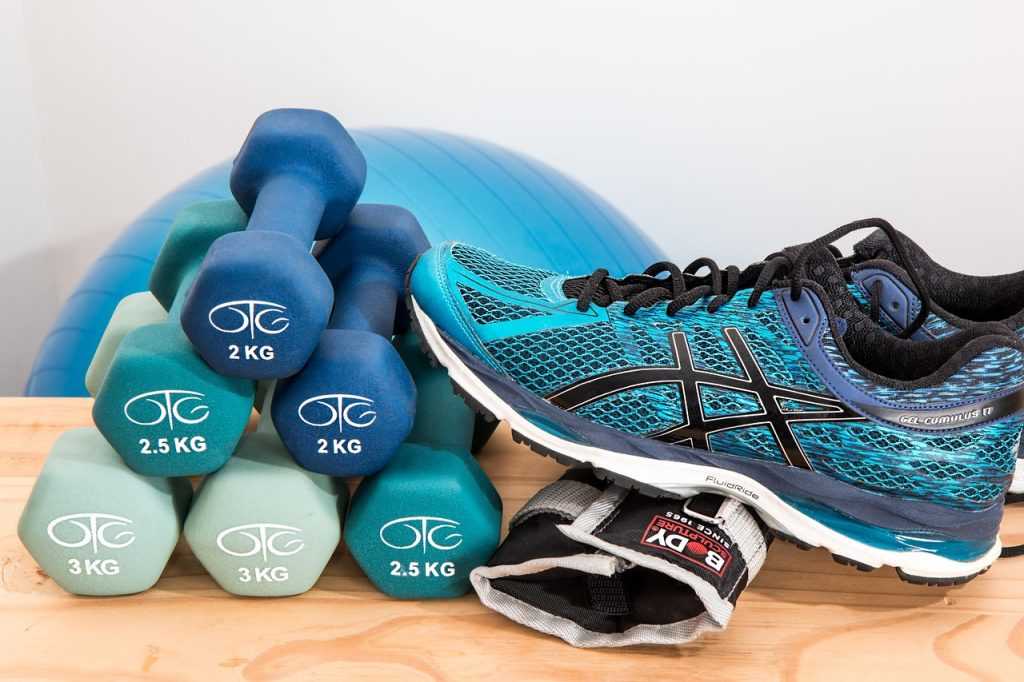As someone who is passionate about fitness and well-being, I understand the drive to push ourselves to the limit in our exercise routines. However, what many individuals overlook is the crucial role that rest days play in achieving optimal results. In this article, I’ll delve into the significance of incorporating rest days into your workout schedule and how they can actually enhance your overall performance and progress.
Contrary to the belief that more is always better when it comes to exercise, our bodies need time to recover and repair from the physical stress we put them through. Ignoring the need for rest can lead to burnout, injuries, and plateauing in your fitness journey.
By understanding the importance of rest days and learning how to integrate them effectively, you can maximize the benefits of your workouts and achieve long-term success in your fitness goals.
Understanding the Role of Rest Days
Rest days play a crucial role in any exercise routine. Overtraining can lead to fatigue, decreased performance, and even injury. It’s essential to understand that allowing your body time to rest and recover is just as important as the actual workout sessions.
By incorporating rest days into your exercise regimen, you give your muscles the opportunity to repair and grow stronger. Rest days help in preventing burnout. Continuous intense workouts without breaks can take a toll on both the body and mind.
It’s important to listen to your body and recognize when it needs time to rest. Rest days provide a mental break from the routine, helping you stay motivated and rejuvenated for upcoming workouts.
Injury prevention is another key benefit of rest days. Giving your muscles time to recover reduces the risk of overuse injuries. It also allows for any minor strains or soreness to heal before they develop into more serious issues.
Remember, a day of rest can save you from weeks or even months of sidelined workouts due to injury. Additionally, rest days are vital for progress in your fitness journey. Muscles need time to repair and rebuild after a workout. It’s during rest that they adapt and grow stronger.
By skipping rest days, you may hinder your progress and limit your overall performance. Embrace rest days as an essential part of your workout routine for better long-term results. Understanding the importance of rest days and incorporating them strategically into your exercise routine is key to achieving your fitness goals.
Listen to your body, prioritize recovery, and reap the benefits of rest days for improved performance and overall well-being.
Benefits of Incorporating Rest Days
Rest days are crucial for maximizing the effectiveness of exercise routines. They play a significant role in enhancing muscle recovery, preventing injuries, and improving overall performance.
Enhanced Muscle Recovery
Rest days are essential as they allow muscles to repair and rebuild, promoting growth and strength. By giving your body time to recover, you facilitate the repair process, leading to more significant gains in muscle mass and improved performance during workouts.
Injury Prevention
Incorporating rest days into your exercise regimen is key to preventing injuries. Overtraining can increase the risk of strains, sprains, and other musculoskeletal injuries.
Rest days help reduce the likelihood of overuse injuries, allowing your body to heal minor strains and prevent more severe damage.
How to Optimize Rest Days in Your Exercise Routine
Exploring how to make the most of rest days in your exercise regimen, I’ll delve into key strategies for optimizing these crucial breaks. Utilizing rest days effectively can significantly impact your fitness journey by enhancing recovery and overall performance.
Let’s delve into the best ways to maximize the benefits of rest days:
- Listen to Your Body: Pay attention to signals your body sends you. If you feel excessively fatigued or notice persistent muscle soreness, it may be a sign that you need more rest.
- Active Recovery: Engage in light activities such as yoga, stretching, or walking on your rest days. This can help improve blood circulation, reduce stiffness, and aid in recovery without exerting yourself too much.
- Proper Nutrition: Ensure you maintain a balanced diet on rest days. Consuming adequate protein, healthy fats, and carbohydrates supports muscle repair and replenishes energy stores.
- Hydration: Stay properly hydrated even on rest days to support overall recovery and muscle function. Water plays a vital role in various physiological processes essential for muscle repair and growth.
- Prioritize Sleep: Quality sleep is crucial for recovery and overall well-being. Aim for 7-9 hours of uninterrupted sleep each night to allow your body ample time to repair and rejuvenate.
By incorporating these strategies into your rest day routine, you can optimize your recovery, reduce the risk of injury, and enhance your overall performance during workouts. Rest days are a fundamental component of any fitness regimen, and by giving your body the time it needs to rest and repair, you can achieve long-term success in your fitness journey.
Common Mistakes to Avoid When Taking Rest Days
In starting any fitness journey, understanding the importance of rest days is crucial. While rest days are essential for recovery and progress, there are common mistakes to avoid to ensure they are truly beneficial.
Here are some key pitfalls to steer clear of to make the most of your rest days:
1. Skipping Rest Days:
One common mistake is skipping rest days altogether due to the fear of losing progress. It’s important to remember that rest is a part of the journey, not a hindrance. Skipping rest days can lead to overtraining, which can result in fatigue, decreased performance, and even injuries.
Embrace the rest days as part of your routine to allow your body to recuperate and come back stronger.
2. Not Listening to Your Body:
Ignoring your body’s signals is another mistake many make when it comes to rest days. It’s essential to pay attention to how you feel physically and mentally. Pushing through extreme fatigue or pain can do more harm than good.
Listen to your body’s cues and adjust your rest days accordingly to avoid injuries and burnout.
3. Engaging in Intense Activities:
On rest days, the focus should be on recovery, not intense training. Engaging in high-intensity workouts or activities that stress the body can hinder the recovery process. Opt for lighter activities like stretching, yoga, or gentle walking to promote blood flow and aid in muscle recovery without causing additional strain.
4. Neglecting Proper Nutrition:
Nutrition plays a vital role in muscle repair and recovery. Neglecting proper nutrition on rest days can impede the body’s ability to recover effectively. Ensure you’re consuming adequate protein, healthy fats, and carbs to support muscle repair and replenish energy stores.
Stay hydrated and fuel your body with essential nutrients to optimize the recovery process.
5. Inconsistent Sleep Patterns:
Quality sleep is crucial for overall recovery and performance. Inconsistent sleep patterns or lack of sufficient sleep can hinder the body’s ability to repair and rebuild muscle tissues. Prioritize sleep hygiene by establishing a consistent bedtime routine, creating a conducive sleep environment, and aiming for the recommended hours of sleep each night to maximize the benefits of rest days.
By avoiding these common mistakes and implementing proper rest day strategies, you can optimize your recovery, minimize the risk of injuries, and progress effectively in your fitness journey. Remember that rest days are not a setback but a valuable component of your overall fitness regimen.



 Mindfulness and Meditation Expert
Paulether Masterson is Aura Nature Spark's mindfulness and meditation expert, with extensive training in various meditation techniques and practices. She is dedicated to teaching individuals how to cultivate inner peace and resilience through mindfulness. Paulether offers workshops and resources that help clients incorporate meditation into their daily routines, enhancing their overall well-being. Her calming presence and insightful guidance inspire many to explore the transformative benefits of mindfulness in their lives.
Mindfulness and Meditation Expert
Paulether Masterson is Aura Nature Spark's mindfulness and meditation expert, with extensive training in various meditation techniques and practices. She is dedicated to teaching individuals how to cultivate inner peace and resilience through mindfulness. Paulether offers workshops and resources that help clients incorporate meditation into their daily routines, enhancing their overall well-being. Her calming presence and insightful guidance inspire many to explore the transformative benefits of mindfulness in their lives.
